
In the rapidly evolving landscape of business, digital marketing has emerged as a pivotal tool for driving success. Local companies, in particular, are recognizing the
Table Of Contents

Search engine optimization (SEO) is a key component of any successful online marketing strategy. For those new to SEO, it can seem overwhelming and intimidating. However, if you take the time to understand the basics of SEO, you can use this powerful tool to improve your website’s visibility on search engines like Google and Bing.
SEO for beginners starts with learning how search engines work and understanding the importance of keywords and content. Keywords are words or phrases used in searches that help search engines find relevant web pages. Content is what helps make a website stand out from the competition.
Relevant content for your industry is essential for ranking higher in search engine results pages (SERPs). Quality content should be informative, engaging, and optimized for relevant keywords so that it appears when people are searching for your product or service. By following these basic steps, you can set yourself up for success to have a high search volume.
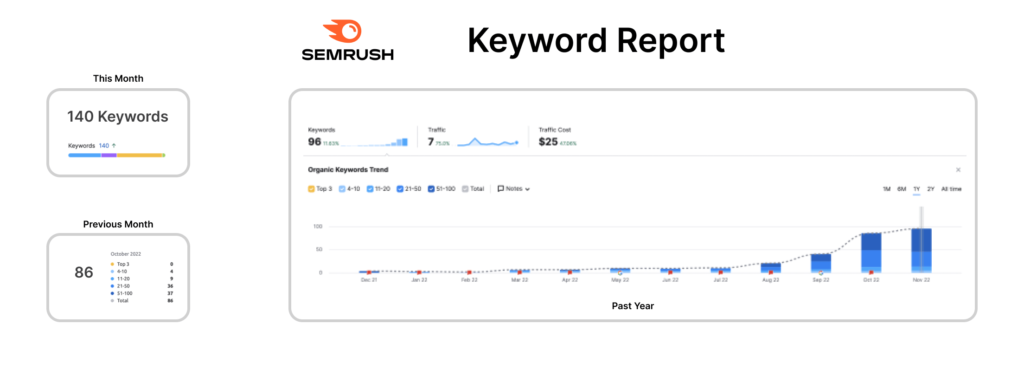
SEO is important for organic traffic to your website. Rather than forking out a set advertising budget or leveraging other platforms to get visits, SEO uses the strength of your domain and industry relevance to keep you at the top of search engines.
Although a strong SEO score is one of the hardest things to build on your website, in the long-term it is worth the investment. Google and other search engines ensure that your website content is relevant, useful, and up-to-date for users searching for specific topics or keywords. If you can improve user experience by ensuring that pages load quickly and providing easy navigation between pages, your google SEO score will continue to grow.
SEO efforts are an essential part of any successful digital marketing strategy as it can help increase website traffic, generate leads, improve user experience and provide insight into competitor strategies.
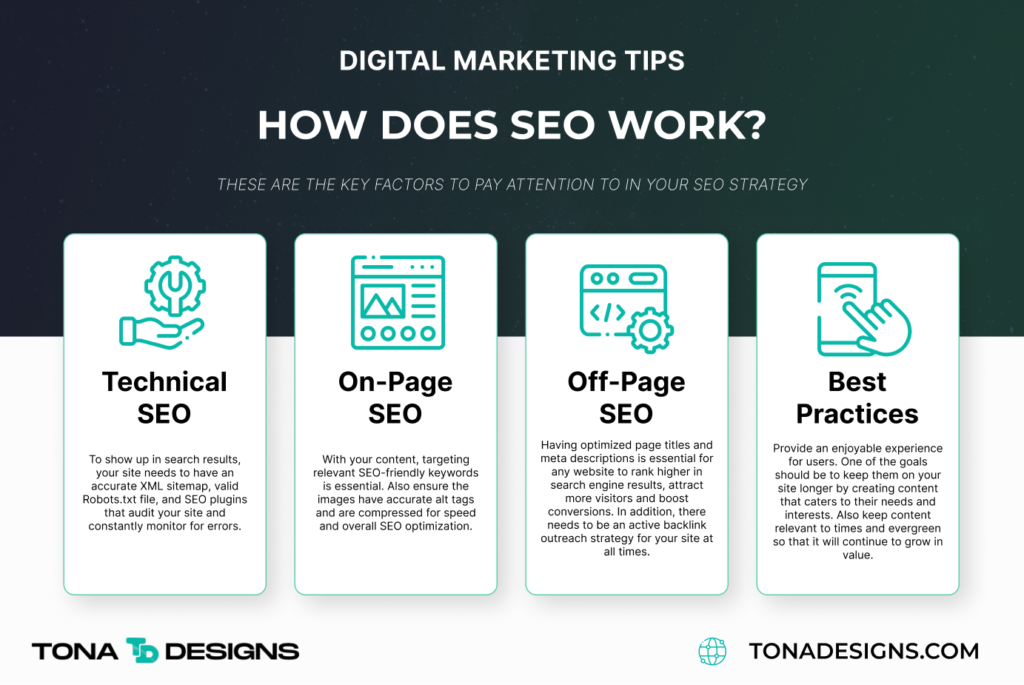
SEO success involves optimizing web content in order to improve its visibility on search engines such as Google, Bing, and Yahoo. The goal of SEO is to increase the amount of traffic that comes to a website from search engine users.
If you’re looking for a comprehensive guide to SEO, this step-by-step guide provides all the information you need to understand how it works and how to implement it effectively on your website. This guide covers topics such as keyword research, on-page optimization, link building, technical SEO, local SEO, and more. With this guide, you have an actionable strategy to implement your SEO starter campaign.
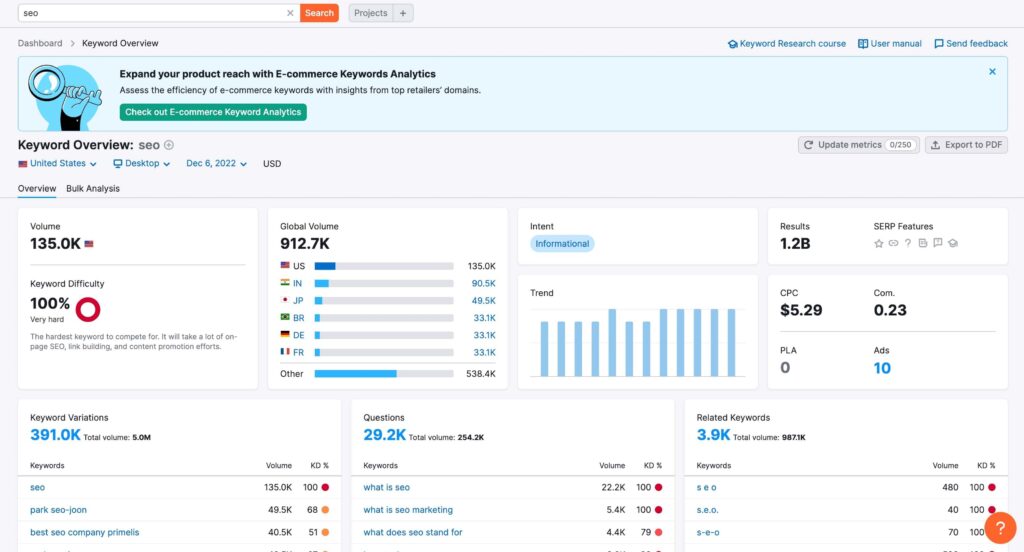
Researching your SEO industry and conducting an SEO audit is essential to ensure your website is up-to-date with the latest trends. Doing research into the current trends in your industry can give you valuable insights into what type of content, keywords and tactics will be most effective for optimising your website.
An SEO audit will also help you identify any areas where your website is lacking in terms of its search engine optimization efforts. It can help you identify technical issues that need to be addressed, as well as any content or link-building strategies that may need improving. By researching your industry and conducting an SEO audit, you can ensure that your website is fully optimized to help it achieve better rankings and attract more relevant visitors.
After you have assessed what your competitors are doing better and what your site needs to improve upon, it is time to create a custom SEO strategy help google find your content and site. By understanding how search algorithms work and what people are searching for, you can create a plan that will help your website to rank higher in the SERPs and gain more organic traffic. Additionally, by focusing on topics that are relevant to your industry or target audience, you can ensure that your content is up-to-date and engaging. With the right strategy in place, you can maximize your visibility online and drive more qualified leads to your website. It is time to use a tool like Google as your stop sales rep.
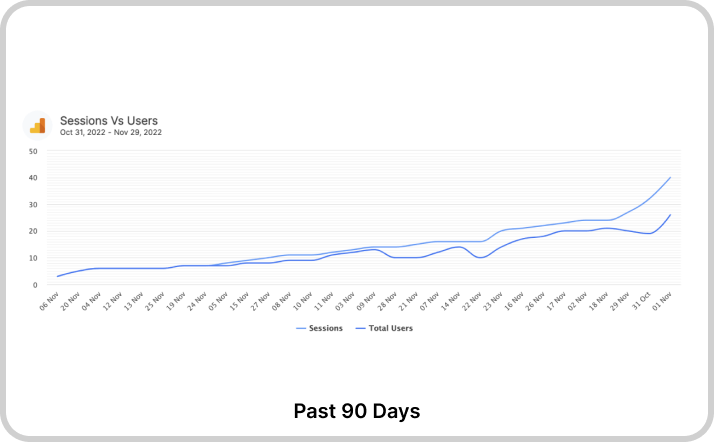
Once you have an actionable plan in place, have your website development and SEO team work congruently to optimize your site. This is a long and gradual process, but there are aspects of the site that need to and should be addressed immediately, such as page indexing and SSL certification.
If your team is creating content for your brand and SEO work, ensure that the content is posted on a set schedule and has at least a couple rounds of quality assurance. Although you want your content creation funnel to be a well oiled machine, you need to execute strategic SEO knowledge every step of the way.
Download Our Free SEO-Checklist Today!
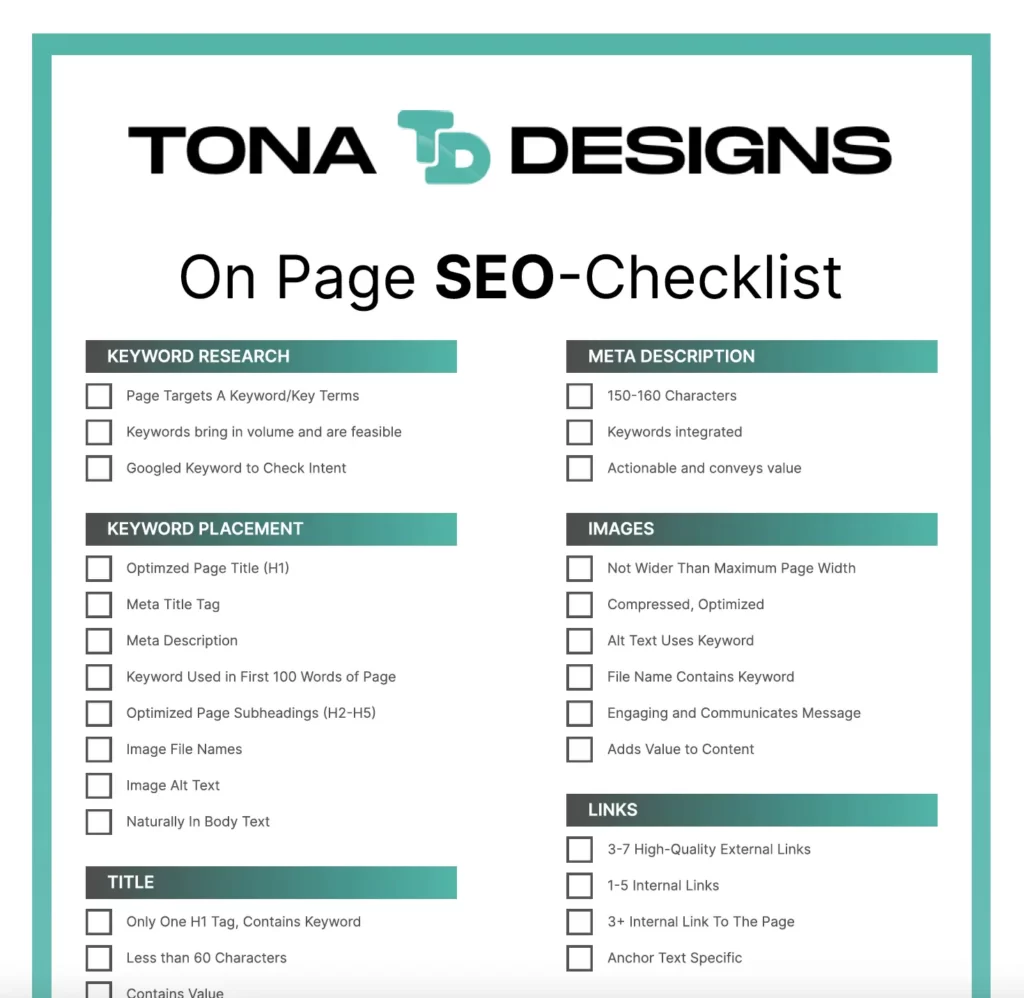
Take advantage of this opportunity to optimize your website’s performance, drive organic traffic, and boost your online visibility. Join our newsletter community and start reaping the benefits of our Free SEO Checklist today!

SEO stands as one of the marketing strategies that requires regular maintenance and adjustment in order to be successful.
A good way to make sure your SEO tactics are working effectively is to regularly assess them and adjust them as needed. This can involve looking at google analytics data, google search console, and other powerful tools for SEO reporting.
Additionally, you should regularly review the latest trends in google search central so you can stay up-to-date with the latest algorithms and best practices. By regularly assessing, adjusting, and reporting on your SEO progress, you’ll be able to maximize its potential and ensure that your business remains visible online.
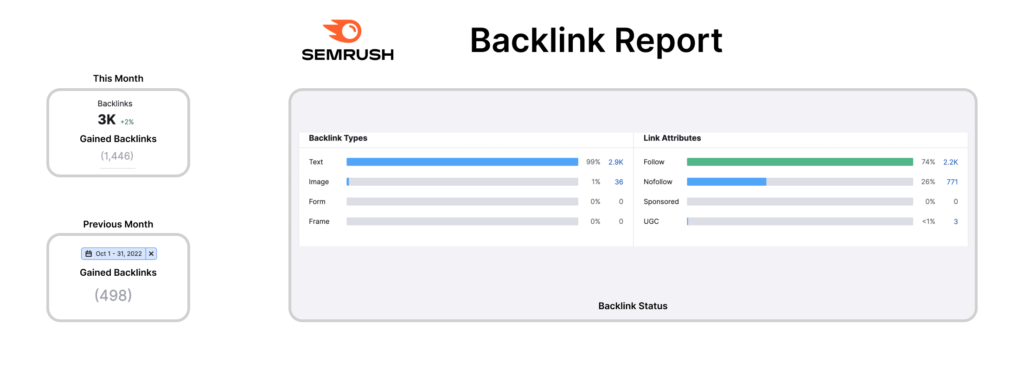
A Search engine’s constant changing algorithm can feel overwhelming. In this complete guide to aspects of SEO, we talk about how to audit a site and it’s SEO score. There are hundreds of factors that tell google where to rank your page amongst search results. In order to make this a comprehensible guide for beginners to easily implement, we distributed these factors into four categories of an SEO audit: Technical SEO, On-Page, Off-Page, and General Best Practices. Before we explain how to conduct an audit as part of an SEO strategy, here are 10 tips to keep in mind to perform well in search rankings.
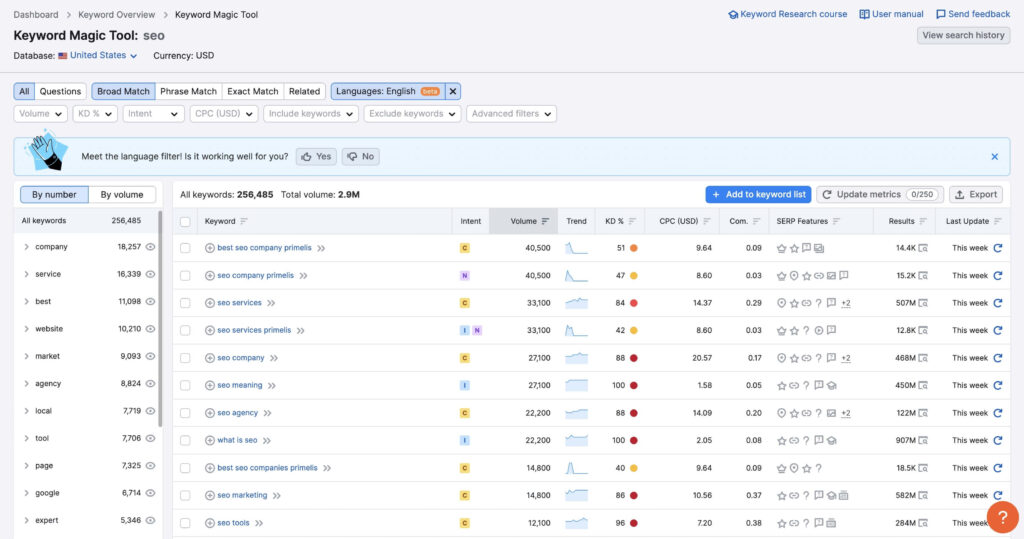
When it comes to optimizing your website for search engine rankings, targeting relevant SEO-friendly keywords is essential. They help you rank higher in the search engine results pages (SERPs), making it easier for potential customers to find you.
By researching and using the right keywords, you can ensure that your content is targeted to the right audience. This includes knowing what words people are searching for, what topics they’re interested in, and how competitive those terms are. It also involves understanding how search engines interpret language and which phrases best describe your product or service.
Additionally, assessing the strength of your competition and analyzing the trends in keyword popularity can help you create a successful SEO strategy. It is important to research and learn SEO keyword difficulty, and which keywords to target for google search results.

Writing quality and original content on your site is a great way to engage readers and build trust with them. Quality content will help you establish authority in your niche, as well as keep readers coming back for more. Additionally, it helps search engine crawlers understand the nature of your website when indexing it in their databases.
To properly optimize your content, research topics thoroughly and make sure each piece of content is written with accuracy and attention to detail while being engaging enough to draw people in. Aim for well-researched pieces that offer value or provide solutions to issues your readers may be facing. This will help you stand out from the competition and build a loyal following on your website.
Download Our Free SEO-Checklist Today!

Take advantage of this opportunity to optimize your website’s performance, drive organic traffic, and boost your online visibility. Join our newsletter community and start reaping the benefits of our Free SEO Checklist today!

When it comes to providing an enjoyable experience for users, one of the goals should be to keep them on your site longer, especially from search queries. This can be done by creating content that caters to their needs and interests.
For example, if a user is searching for information on a particular topic, make sure there is enough relevant content available so that they don’t have to look elsewhere. Additionally, using visuals such as images and videos can help engage users and keep them interested in what you have to offer.
Finally, ensuring your website is easy to navigate will help users quickly find what they are looking for without having to search through multiple pages or links. In addition, posts that have lists will rank well in search results.
Formatting your content for search engines and targeting featured snippets is a great way to ensure that your website stands out amongst the competition. By using optimized headings, relevant keyword phrases, and properly-structured content, you can efficiently translate website content to google. Optimizing your page and having list-format posts will help search engines understand what value your content provides.
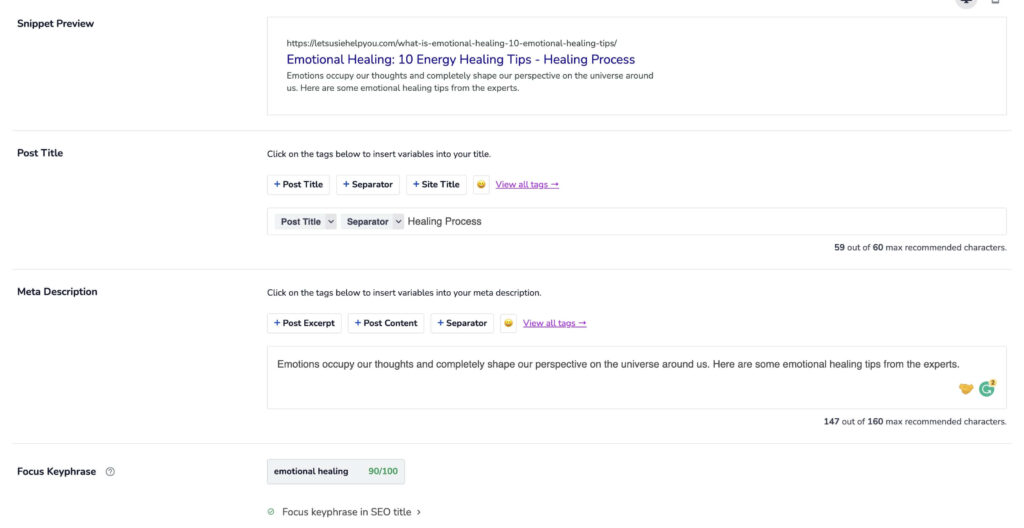
Having optimized page titles and meta descriptions is essential for any website. It can help your website rank higher in search engine results, attract more visitors and boost conversions.
Page titles should be keyword rich and unique to the page, making sure that the most important keywords appear first. Meta descriptions should also include relevant keywords and a call to action that encourages readers to click through to your website. Additionally, you should make sure your titles and descriptions don’t exceed recommended lengths for each search engine, otherwise they won’t display properly. Finally, keep them up-to-date as often as possible.
Regularly updating your titles and descriptions with fresh content helps ensure that your website remains relevant for search engines to crawl. With a little bit of effort and the right optimization strategies, you can make sure that your page title and meta description are doing their job properly.
Having a short to the point URL will also help search engines find your site and rank it well. Having a concise easy-to-understand URL will help your page display in search results.
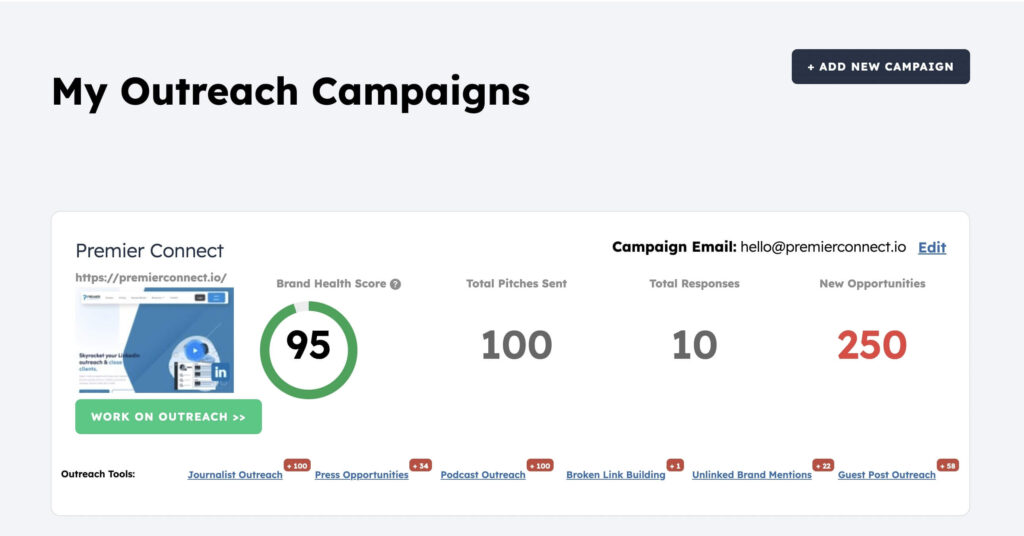
One of the most effective strategies to boost website rankings and increase traffic is to share content on high-site authority websites. One of the keys to performing well in google search is by having high domain-authority backlinks. When you have a plentitude of high quality backlinks, you will quickly gain more traffic to your site. Combine that with an excellent content creation strategy, and your site is used by search engines globally!
When you’re trying to improve website performance, it’s important to remove anything that loads slowly. Slow loading speeds can have a negative impact on user experience and can even cause visitors to abandon your site.
Slow load times can be caused by large images, videos, or scripts that take time to download, as well as poorly optimized code. It’s also important to optimize your database queries so they load quickly and efficiently. If you notice any slow-loading elements on your website, take the necessary steps to identify the problem and fix it right away.
This could mean optimizing images, minifying files, or simply removing any unneeded content from the page. Taking the time to make sure everything loads quickly is an essential part of any SEO strategy.
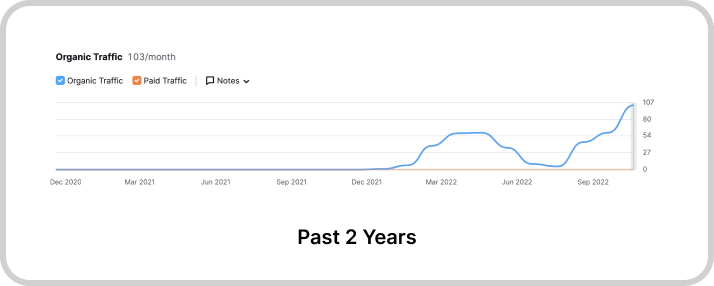
When writing content for a website, it is important to create a mix of internal and external links. Internal links are links between pages and posts within the same domain of the website.
This helps visitors to navigate easily around the website and allows them to explore related topics. External links are links that point from the website to other external websites. This can provide visitors with additional information on topics, as well as helping to build relationships with other websites.
When creating a mix of internal and external links, it is important to make sure that the linking does not appear spammy or irrelevant. Links should be relevant to the topic of discussion and should add value for readers.
Optimizing your graphics is an important step to ensure that your visuals look their best and load quickly. There are several ways to optimize your graphics. The first is to reduce the file size of images by compressing them or using a web-based image optimizer. Additionally, you can use vector images rather than rasterized images, which tend to have smaller file sizes and higher resolutions.
Lastly, you should make sure that each image has its own dedicated page on your website so that it can be loaded more quickly. Taking these steps will help to improve the overall performance of your website and create a better experience for users who visit it. Google uses optimized graphics in the image organic search results, so having strong graphics will help you.

SEO Auditing helps to identify and assess areas of improvement for a website’s search engine optimization (SEO) strategy. Performing an SEO audit involves analyzing various factors, such as the website’s content and structure, technical infrastructure, keyword research, backlinks, and usability. Having proper technical infrastructure helps google understand the layout of your site. Google has made several revisions to their algorithm over the years, so you need to constantly identify and fix any new SEO issues.
Download Our Free SEO-Checklist Today!

Take advantage of this opportunity to optimize your website’s performance, drive organic traffic, and boost your online visibility. Join our newsletter community and start reaping the benefits of our Free SEO Checklist today!

Having an SEO audit checklist is essential to making sure your website is optimized for search engine rankings. It should include tasks such as conducting keyword research, optimizing page titles and meta descriptions, improving page loading speed, creating quality content, tracking user behavior and analytics data, and more. An effective beginner’s guide to SEO would not be complete without a checklist, so be sure to download our free version today!
It is essential that you incorporate both primary and secondary key words into your page, content and pieces. Take a moment to examine your page thoroughly, ensuring that it provides useful information while still keeping the keyword as the main point of focus.
The page should be clear and concise, providing useful information about the keyword. It should explain what the keyword is, its purpose, and how it can be used in different contexts. Additionally, other related topics should be explored to provide context and further understanding of the keyword.
All content should be accurate and up to date, written in a way that is easy to understand. Finally, the page should include relevant links or references to further explore the topic if desired.
Moreover, you can use ‘ctrl+f’ (or command + f for macOS users) to search a page for your keyword and count the number of times it appears.

Ensure that the page is optimized for rapid loading on both smartphones and PCs. To ensure that the page is optimized for rapid loading on both smartphones and PCs, you should use a mobile-first approach when designing the page.
This involves creating a page design that is optimized for mobile devices first, then adding in additional features for desktop users as needed. You should also optimize your images and other media files to reduce their total size, which will help to reduce the overall loading time of the page.
Additionally, you should use caching techniques to store commonly used elements such as scripts and style sheets so that they don’t need to be re-loaded each time the page is requested.
Ensure the meta data of your web page, for example the Page Title, Page Description, and Featured Image alt tags are all optimally employing pertinent key phrases.
Page Title:
Optimally use a key phrase that describes the content of the page and is relevant to your overall website to help google know what information you are providing.
Page Description:
Include a concise description of the page content that includes pertinent key phrases. Make sure it accurately reflects what is on the page and not overly long.
Featured Image Alt Tags:
Include a descriptive alt tag for each featured image which also contains pertinent keywords related to the content of the page.
Ensure that the links leading to your website are reliable, and harmless, and attract potential visitors! Backlinks with high Domain Authority are also essential. You can use a variety of tools to check the quality of your backlinks, such as Ahrefs or Moz.
You can also use Google Search Console to find out which websites are linking to you and whether they are reliable or not. Additionally, you should ensure that all links from external sources leading to your website are functioning correctly. Finally, make sure that the anchor text used in the link is relevant and descriptive so that potential visitors know what kind of content they will be viewing when they click on it.
8 Ways to Get Backlinks:
1. Utilize social media to promote your website and encourage visitors to link back to your site.
2. Create content that is interesting, relevant, and high-quality, as this will help attract organic backlinks.
3. Reach out to other websites in your industry and offer guest blogging opportunities or guest posts with a link back to your website.
4. Use search engine optimization tactics like keyword research and strategic placement of those keywords throughout your website’s content. This will help increase the visibility of your website in search engine results pages (SERPs).
5. Submit press releases or create an online presence in directories such as Yelp or TripAdvisor that can link back to your website.
6. Take advantage of forums related to your industry and post helpful information that links back to relevant areas on your website.
7. Create engaging videos and infographics for social sharing that include a link back to your website.
8. Analyze the domain authority of potential sources for links before you reach out so you know which ones are more likely to provide good quality links for SEO purposes
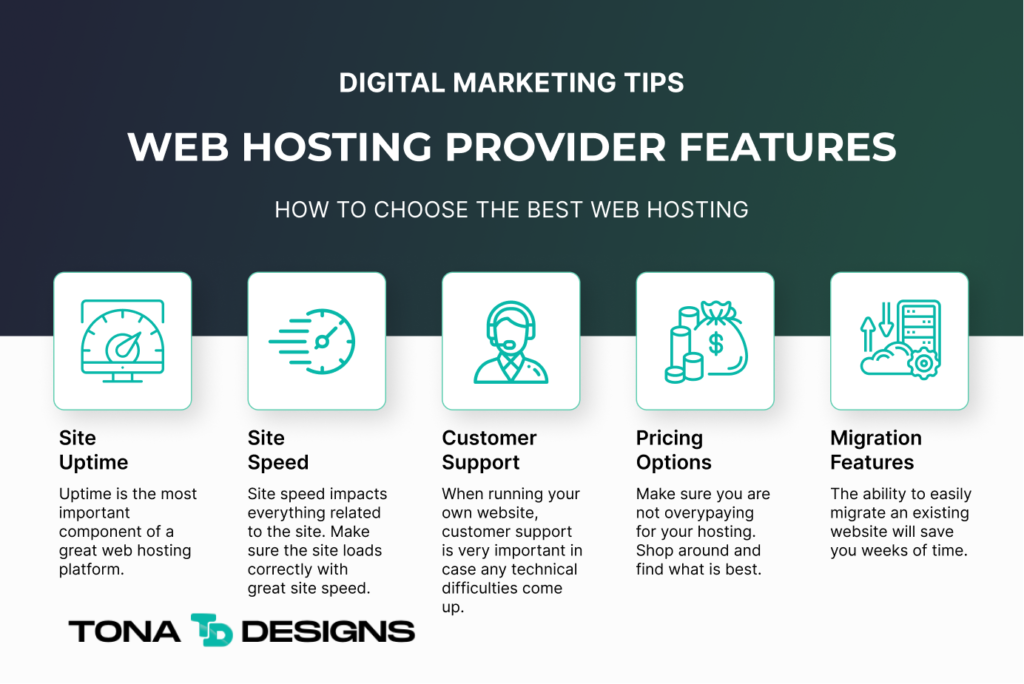
Ensure that you do not squander the audience’s time with dull and unclear information. Invest energy to communicate your ideas plainly and furnish the reader with your specialist knowledge. Make sure to include a call-to-action that encourages the reader to take action or further engage in the discussion.
Also, avoid using large blocks of text, and instead divide your content into sections with clear headings and bullet points that make it easier to read. Finally, use visuals such as photos, graphs, and infographics to make your content more engaging.
To show up in search results, your technical SEO has to be on-point. This means you need to make sure you have an accurate XML sitemap, Robots.txt file, and SEO plugins that audit your site and constantly monitors for errors. Having a page with perfect technical SEO tells search engines that your site is reputable and an industry-leading hub.

Welcome to your SEO journey! Now you know the essential parts of SEO, you understand that performing in google search depends on a variety of factors. In this Google SEO starter guide, we broke down the components into four parts: Technical SEO, On-Page, Off-Page, and General Best Practices.
When it comes to SEO, if you continue to audit your site, share your content, and follow this beginner’s guide, you are guaranteed to get more organic traffic. Lastly, do not forget to take full advantage of tools like google analytics, google ads, and other platforms that help you improve how your site ranks in search results. Thank you for reading and have a great day!
If you want to learn more than the basics of search engine optimization, feel free to join our email list, or reach out to our team! Make sure your on-page and off-page SEO is excellent with our qualified staff!
How To Improve Your Website’s Loading Speed Through Design
Minimizing HTTP requests
Optimizing images
Compressing files
Reducing the use of external resources
Using content delivery networks (CDNs)
Leveraging browser caching
Using lazy loading
#WebDesign #DigitalMarketing #SEO #UserExperience #BrandIdentity #tonadesigns
May 19

The Do’s and Dont’s of Website Design for Small Businesses
When it comes to designing a website for a small business, there are certain do’s and don’ts that should be followed to ensure that the website is effective and meets the needs of the business. In this article, we will explore some of these do’s and don’ts to help small business owners create a website that is both functional and visually appealing.
#WebDesign #DigitalMarketing #SEO #UserExperience #BrandIdentity #tonadesigns
May 16

Motivational Quote For Your Hump Day!
“ If you want a thing done well, call on some busy person to do it. Busy people are generally the most painstaking and thorough in all they do ” - Napoleon Hill
#business #entrepreneur #businesstips #digitalmarketing #businessstrategy #success #motivation #grantcardone
Mar 1

8 Tips for Starting Your First Business!
Swipe to learn more →
Thank you for reading!
#business #entrepreneur #businesstips #digitalmarketing #businessstrategy #elonmusk #grantcardone #billionaire #patrickbetdavid #tonyrobbins #valuetainment #businesstips #smallbusiness #palmsprings #coachellavalley #tonadesigns #tonabusinessblog
Feb 28

11 Secrets for Growing Your Business Quickly
1. Hire The Right People
2. Focus on established revenue sources.
3. Reduce your risks.
4. Be adaptable
5. Focus on your customer experience.
6. Invest in yourself.
7. Always think ahead.
8. Prioritize Customer Service
9. Establish a social media presence
10. Attend networking events.
11. Research your competitors.
Thank you For Reading!
#businessgrowth #business #entrepreneur
Feb 1


In the rapidly evolving landscape of business, digital marketing has emerged as a pivotal tool for driving success. Local companies, in particular, are recognizing the

What are backlinks? How to Get Backlinks in SEO. Off-Page Backlink and Types of Backlinks Explained.
Understanding Backlinks: The Cornerstone of SEO Success In the ever-evolving landscape of digital marketing, the term “backlinks” has become nothing short of a buzzword. Yet,

What is ROI? Return on Investment Explained
In the world of business, understanding your investments’ returns is crucial. ROI, or Return on Investment, is a fundamental metric that helps businesses measure the

Web design is a captivating journey into the digital world that involves creativity, functionality, and innovation. If you’re new to the concept of web design,

WordPress has emerged as one of the most popular content management systems (CMS) and website-building platforms globally. It empowers both beginners and experienced users to

How Digital Marketing Can Scale Your Business. Grow With A Digital Marketing Agency
Introduction In today’s fast-paced and technology-driven world, digital marketing has become an indispensable tool for businesses seeking growth and scalability. By harnessing the power of
Take the First Step
Why not take the first step today and entrust Tona Designs with the creation of a professional and elegant website design for your business? Our experienced team is dedicated to crafting visually stunning and highly functional websites tailored to your specific business needs.
Website Design Frequently Asked Questions
Web design primarily revolves around the visual and experiential aspects of a website, ensuring it is user-friendly and visually appealing. On the other hand, web development takes place in the background, involving tasks such as software development, coding to establish the website’s structure, and resolving any issues or glitches. When it comes to creating a business website, most web designers are equipped to handle the necessary web development tasks as well.
The cost of our expert web design team is determined by the complexity of the project. Our pricing typically ranges between $60 and $80 per hour, taking into account the team’s experience and the scale of the website required. Based on these factors, clients can expect to invest between $1,000 and $5,000 for the creation of a new business website.
Website builders are convenient online platforms that allow you to develop websites without the need for coding knowledge or investing significant amounts in web designer fees. You’ll find specialized ecommerce website builders like Shopify, tailored for building online stores, as well as versatile builders like Wix, suitable for non-ecommerce websites. While our team possesses expertise in various development techniques, ranging from HTML/CSS to SquareSpace, our preferred choice is WordPress. We utilize premium plugins and implement custom CSS to ensure swift, efficient, easily customizable, and visually impressive websites.
The significance of web design lies in its potential to influence business performance. A website that is poorly designed and challenging to navigate can tarnish your brand’s image and potentially lead to a decline in sales. On the other hand, a professionally crafted and user-friendly website has the power to engage visitors, prolong their stay, and ultimately boost sales. With an estimated 2.14 billion individuals projected to engage in online purchasing in 2023, seizing this opportunity is imperative to avoid missing out on potential growth.
When seeking the ideal web design company for your business, it’s essential to begin by evaluating the specific type of website you require and determining the objectives you want your new site to accomplish. Additionally, take into account your budgetary constraints. Subsequently, conduct an online search for companies operating within your local area, and carefully assess customer testimonials and reviews to ascertain that your selected agency possesses a demonstrated history of success.
Visual Appeal: The visual design of a website should be aesthetically pleasing, using colors, typography, and imagery that align with the brand identity and target audience.
Responsive Design: Websites must be designed to be responsive, meaning they adapt and display correctly across various devices and screen sizes, including desktops, tablets, and smartphones.
Intuitive Navigation: Visitors should be able to easily navigate through the website and find the information they are looking for without confusion or frustration. Clear and organized menus, breadcrumbs, and search functionality contribute to intuitive navigation.
Fast Load Times: Slow-loading websites can significantly impact user experience and lead to high bounce rates. Optimizing images, minifying code, and leveraging caching techniques are some strategies to improve website speed.
Clear Call-to-Actions (CTAs): Effective web design includes prominent and well-designed CTAs to guide visitors towards desired actions, such as making a purchase, signing up for a newsletter, or contacting the business.
Consistent Branding: Maintaining consistent branding elements, such as logos, colors, and typography, throughout the website helps establish brand identity and recognition.
Accessibility: Web design should consider accessibility standards to ensure that people with disabilities can easily navigate and interact with the website using assistive technologies.
Optimized for SEO: Implementing proper SEO techniques, such as optimized page titles, meta descriptions, headings, and alt tags for images, improves search engine visibility and organic traffic.
Selecting the right color scheme for your website is crucial, as it can greatly impact the overall look and feel. Consider the following tips when choosing a color scheme:
Understand the Psychology of Colors: Colors evoke different emotions and have different meanings. For example, blue is often associated with trust and professionalism, while yellow is associated with energy and optimism. Consider your brand identity and target audience when selecting colors.
Create Contrast: Ensure there is enough contrast between text and background colors to enhance readability. High contrast also makes important elements, such as CTAs, stand out.
Stick to a Limited Color Palette: Using too many colors can create visual clutter. Choose a primary color and a few complementary colors that work well together and align with your brand.
Use Color Wheel Tools: Online color wheel tools can help you find complementary, analogous, or triadic color schemes. They provide harmonious combinations that are visually pleasing.
Consider Color Accessibility: Some color combinations may pose difficulties for color-blind users. Test your color
Absolutely! Once Tona Designs finishes developing your website, you’ll have full access to make any necessary changes yourself. Our team is committed to simplifying the process by utilizing a Content Management System (CMS), enabling effortless updates. We even provide custom tutorials to train your staff on managing the website. Furthermore, we offer Tona Hosting, a service where our dedicated staff regularly monitors your site and collaborates with your team to enhance your online presence. Rest assured, we are fully invested in optimizing your digital success!
In the majority of our website projects, you can anticipate a turnaround time of 4 to 7 weeks. However, the specific duration is subject to factors such as your feedback and the intricacy of the project. Rest assured, our team follows a well-established system that ensures consistent progress, enabling us to expedite the completion of your new website experience. We are committed to delivering your project promptly and efficiently!
Create a Result-Driven Online Experience For Your Business with Our Qualified Web Design Team
Tona Designs © 2024 All Rights Reserved
We have successfully received your form submission. Our team will reach out to you shortly with next steps. Feel free to browse our website in the meantime!